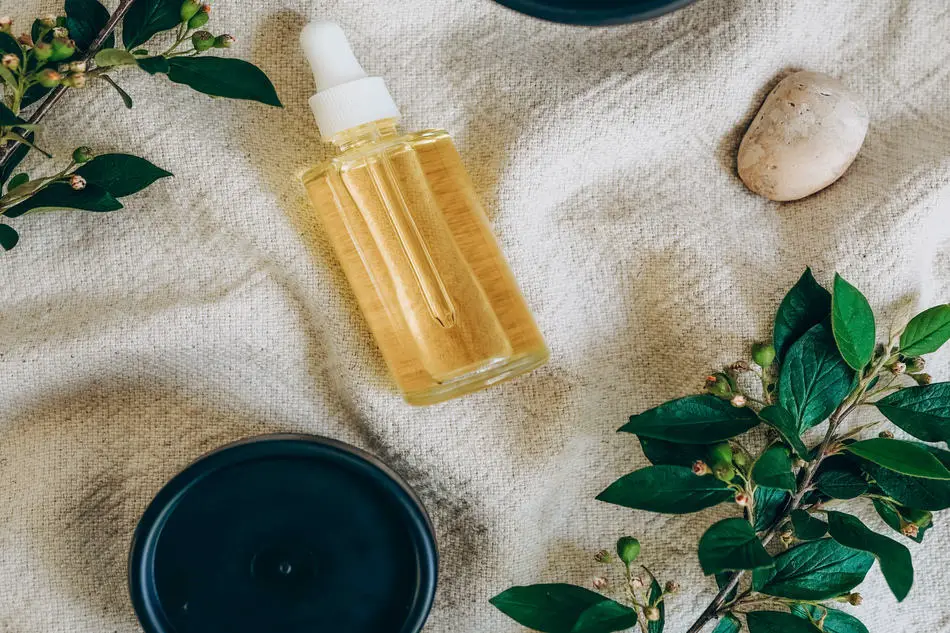One of the most effective home treatments for joint discomfort may be already in your pantry. While aromatherapy has been around for a while, it’s a safe, efficient, and evidence-based alternative before visiting the doctor’s office. Ginger oil, for example, is one of the most powerful anti-inflammatory oils. It helps with knee, low back, and arthritis discomfort by massaging it onto the skin.
Even though you can buy a strong oil in shops, making your own is much easier than you might believe:
- Only one and a half cups of extra virgin olive oil and one cup of fresh ginger are required.
- Leave ginger out for two to three hours after rinsing and drying it.
- After completely dry, grate it with a cheese grater and place it in an oven-safe dish.
- Bake the mixture for two hours at 150 degrees Fahrenheit, adding the olive oil as needed.
- Remove the bowl after the timer has rung and strain the oil through cheesecloth or a very tight strainer into another bowl to get rid of all of the tiny pieces of ginger.
- Fill the funnel halfway with the oil, then transfer it to a new bottle. The oil will remain fresh for six months if kept in a cool place.
The oil of the ginger rhizome is extracted by distillation, as are many other root crops. It has a similar concentration of essential oils to many other plants. It has a strong, spicy, or warming odor when used aromatically. As a result, it is frequently used in aromatherapy. It can also help to improve the health of your skin and hair.
Ginger and ginger oil have also aided in the treatment of these problems:
- nausea
- arthritis
- upset stomach
- colds
- migraines
Benefits Of Ginger Oil

According to anecdotal evidence, the ginger oil may have health advantages. As a result, they are based on personal experience rather than scientific study.
Although ginger oil’s possible health advantages are still under study, it is believed to have anti-inflammatory, antibacterial, and antiviral properties. Continue reading to learn what the research has discovered so far.
1. Anti-Inflammatory
The research of this oil was conducted on rodents, but the findings may have important applications.
In a study, ginger oil’s protective effect on the kidneys of rats was demonstrated. Ginger anti-inflammatory oils have been studied in adults and children with kidney function indicators or molecules.
In 2016, researchers studied rats with rheumatoid arthritis. The researchers said ginger essential oil injections reduced chronic joint swelling but not acute joint edema.
In 2019, scientists investigated the impact of adding ground ginger extract to an obese mice diet high in refined carbohydrates to see whether it made a difference. When taken in large amounts, Ginger extract was found to prevent weight gain and reduce inflammation biomarkers.
2. Nausea
In the past, The smell of this oil has been utilized to relieve nausea. There has been a mixed bag of findings from research studying this technique.
In a 2017 research, it had discovered that ginger oil inhalation helps with postoperative nausea following abdominal surgery. Its users had reduced levels of sickness and vomiting than those who took a placebo.
On the contrary, other research found different findings. A ginger-infused essential oil solution was compared to a placebo to determine which caused the least postoperative nausea in children who inhaled it. They discovered no difference in nausea between kids who inhaled the essential oil combination and those who breathed air alone.
3. Hair
Ginger oil or extract is also important in certain shampoos and other hair treatments. However, no research verifies this.
In 2013, 6-gingerol, an active component in this oil, was investigated for hair development in cultured cells and mice. 6-Gingerol, which is found in a ginger root, has an unexpected effect: it shuts down hair growth in cultured hair follicles and a mouse model.
4. Skin
It takes a lot of additional studies to understand how ginger oil can help improve inflammation and skin appearance when applied topically.
Ginger oil, for example, tested in a 2015 anti-aging skin cream study. Antioxidant activity was discovered in various essential oils.
After the essential oils started blending into a cream, a small group of people showed an improvement in skin roughness.
In rats with arthritis, applying several essential oils to their skin daily had a beneficial impact. Ginger was one of those oils.
According to research, the combination of essential oils improved arthritis severity and inflammation.
How to Use Ginger Oil?

Essential oils should never be ingested or consumed. This is important to keep in mind.
Use ginger oil for aromatherapy and topical applications by following the instructions below:
1. Aromatherapy
Ginger oil is an application for aromatherapy in a variety of ways. Choose the one that works best for you:
2. Diffuser
Diffusers are a simple way to add a pleasant scent to any space. You have to dilute essentials oils with water. Before utilizing the diffuser, carefully read and follow all of the instructions.
3. Inhalation Of Steam
When inhaled, may be used to treat snoring as follows:
- Fill a large saucepan halfway with water and bring it to a boil.
- The raw ginger oil can be combined with boiling water. The University of Minnesota Center for Spirituality and Healing (CSH) recommends starting with just one or two droplets.
- Wrap a towel around your head and secure it in place.
- Close your eyes and place your chin over the heated bowl while inhaling deeply.
4. Sprays
A few spritzes of ginger oil throughout the air in space will freshen it up. You can spray ginger oil by following these instructions:
- Add a few drops of ginger oil to a cup of hot water. According to the National Association for Holistic Aromatherapy, ten to fifteen drops per ounce of water is ideal.
- You may also add a dispersing agent, such as soluble. This can aid in the distribution of the essential oil into the water.
- Spray the bottle after agitating it. Before using, give the spray a good shake.
5. Topic-Specific Applications
First, you should mix ginger oil with carrier oil before applying it to the skin. The following are some of these oils: almond oil, jojoba oil, coconut oil, and avocado oil.
The CSH recommends that a blend of essential oils not exceed 3% to 5% of the entire solution. For example, NAHA suggests 20 drops of essential oil per ounce of carrier oil for a 3 percent solution.
Conclusion
You can also make ginger oil with ginger roots, a volatile essential oil with a pungent and spicy odor. According to studies, ginger oil has anti-inflammatory effects and may aid in relieving nausea.
Ginger oil has a warming, spicy aroma in aromatherapy and topical application. Before applying this oil to your skin, be sure to dilute it.
Related Article:

